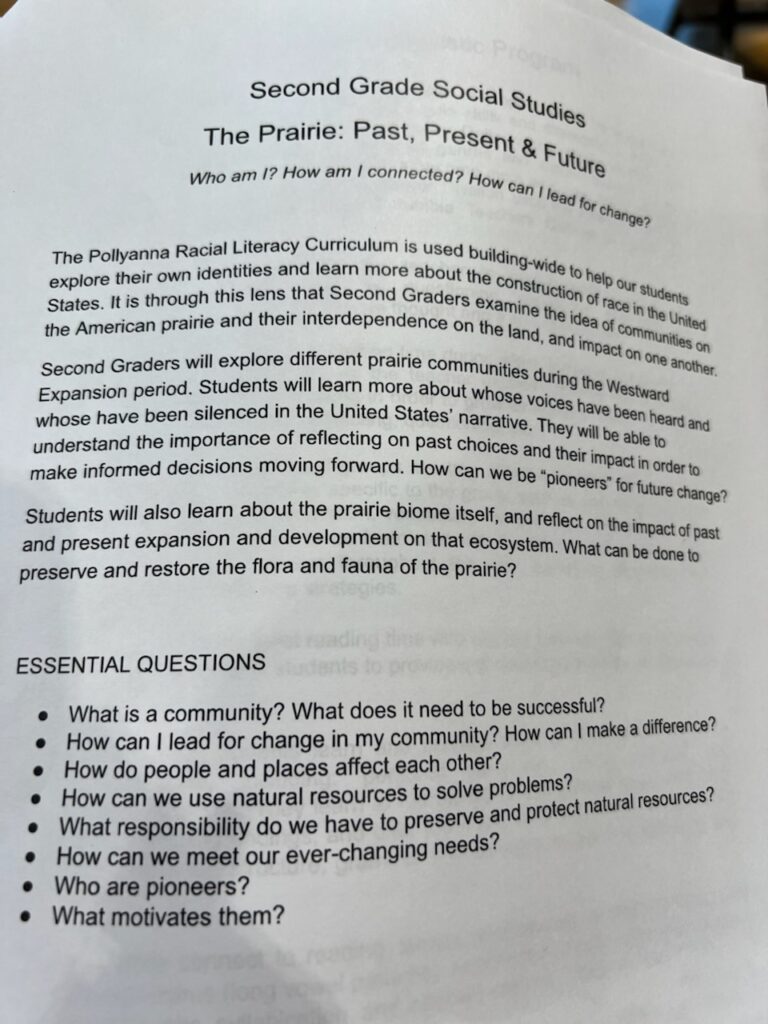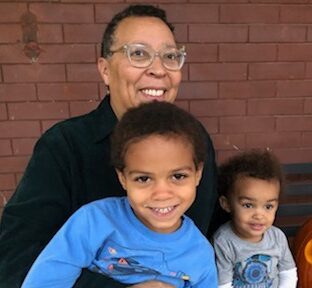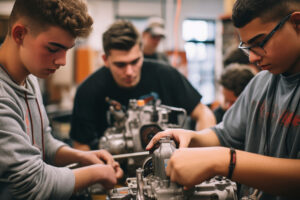What we don’t acknowledge often enough is that parents are assembling learning experiences every day, the same way they assemble lunches.

Some Assembly Required
School started for my two grandsons last week so I’ve been getting pictures documenting how the pieces of this year’s learning adventures are coming together. I got a fuzzy screen shot of the one-page synopsis of Theo’s second grade social studies curriculum – “The Prairie: Past, Present, and Future” – with “this is why I love this school” (the kids attend an amazing PreK-6 private school at the foot of their block) as the accompanying text. Two days later, I got videos of the kids at their first Circus School class where they get to combine tumbling, ropes, and clowning. I’m waiting for photos from the birthday bowling party.
And while I’m glad that my daughter and son-in-law have the means to assemble excellent educational options for their kids in and out of school (and at home with a huge array of Lego and Kiwi science kits), I worry about the kids two miles away in Ferguson whose lives are being actively disassembled. My daughter sees them in the asthma clinic. She worries too.
So, I was intrigued when I read the title of a new piece on my favorite topic: Some Assembly Required: How a More Flexible learning Ecosystem Can Better Serve All and Unlock Innovation. We talk about creating, improving, strengthening ecosystems and about unbundling learning components. But what we don’t acknowledge often enough is that parents are assembling learning experiences every day, the same way they assemble lunches. Some assembly required is an accurate statement about parents’ roles in their children’s education.

Parents, according to Some Assembly Required, now spend more than $200 billion annually on supplemental educational opportunities for their children. That sum is on top of the $750 billion communities, states, and the federal government dedicate to public education. The lion’s share of that $200 billion is spent by affluent parents, creating what Rotherham calls “shadow inequity” in how, where, and when students learn. And the inequity is growing. In the 1970’s the richest quintile spent four times as much as the poorest on enrichment activities. 30-plus years later the ratio was seven to one.
Some Assembly Required is one of the three grounding papers that accompany a bold announcement in the 74 of Beta by Bellwether. Beta is “a new initiative bringing viewpoint-and background-diverse experts together to tackle big problems and develop blueprints, strategies and tools that can help communities address structural educational problems.”
Parents, according to Some Assembly Required, now spend more than $200 billion annually on supplemental educational opportunities for their children.
Assembly, an initiative to analyze equitable access to learning opportunities, is Beta’s first down payment towards “a better path forward.” Some Assembly Required describes Assembly’s potential benefits and pitfalls; recount how public schools came to serve so many student needs; and describe the existing landscape and emerging trends of the dangerously inequitable shadow ecosystem fueled by parents who have more tools in their toolboxes.
Assembly and Beta aren’t the first initiative to chart a course from closed school systems to flexible learning ecosystems. But they may be the most pragmatic. Rotherham, Bellwether’s CEO tethers Assembly’s diverse group of experts to reality by lifting up the voices and analyzing the actions of parents who are consistently calling for bolder, better learning opportunities.
Rotherham may be presumptuous to introduce Assembly as “a better path forward.” But so far, I’m intrigued enough to follow it.




No comment yet, add your voice below!